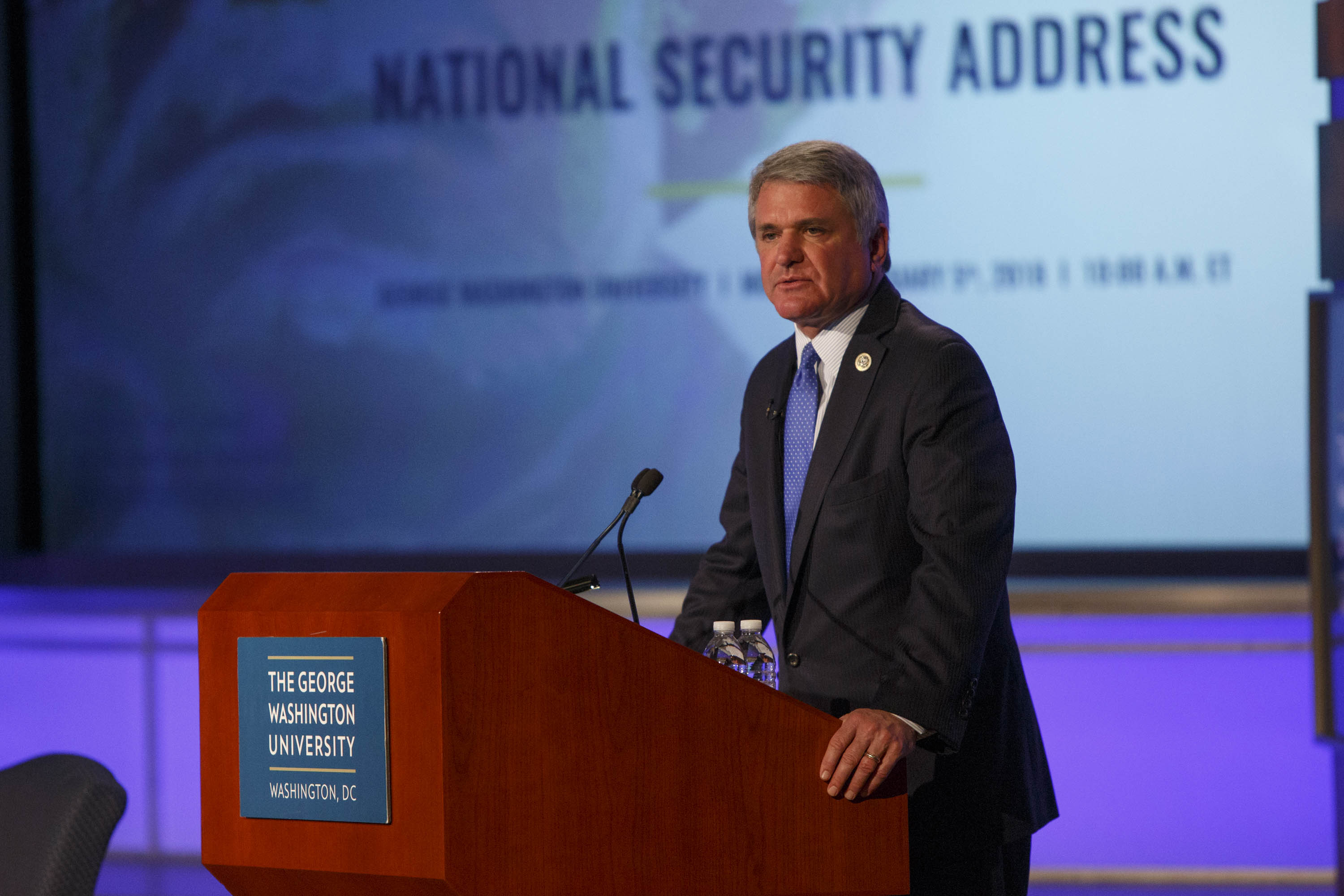By Kristen Mitchell
The George Washington University Nuclear Security Working Group was recently awarded a $3.5 million grant from the John D. and Catherine T. MacArthur Foundation to expand a pilot fellowship program that encourages bipartisan consensus on nuclear issues on Capitol Hill.
The GW Nuclear Security Working Group consists of a high level group of non-partisan national security experts who work behind the scenes with members of Congress interested in nuclear security. The NSWG fellowship program was designed and is run by Janne Nolan, chair of the NSWG and a research professor at the Elliott School of International Affairs.
The fellows, embedded in the House of Representatives and the Senate, share expertise and promote informed consensus among members of Congress and their staffs. There has been a steady decline in the level of nuclear expertise in the Congress since the end of the Cold War, and shrinking congressional staff numbers have made it difficult for the legislative branch to handle the complexities of many national security challenges, Dr. Nolan said.
“In this new era of intense partisanship, the relative lack of expertise is undercutting needed consensus for national security issues, including nuclear policymaking,” she said. “The combination of eroding expertise and political polarization are a lethal combination, no pun intended.”
This year, seven fellows are serving one-year terms in the House and Senate, an increase from just two fellows the year before when the program launched. Both of the inaugural fellows placed last year were hired as full-time staffers in their respective Democrat and Republican offices.
The inspiration for the fellowship came from Rep. Jeff Fortenberry (R-Neb.), the chair of the House Nuclear Caucus, now called the Congressional Nuclear Security Working Group. The idea was to try to aid a few congressional offices by offering expertise that would ease staff shortages, allowing legislators to have more time to focus on nuclear issues and national security. The pilot fellowship program was initially grants for $1.3 million from the MacArthur Foundation in 2016, with additional funding to operate the NSWG from the Carnegie Corporation of New York.
The three-year renewal funding from the MacArthur Foundation will allow the NSWG to continue expanding the fellowship. By 2020, the NSWG plans to support eight fellowship slots, four for each chamber.
“Our hope is that having more fellows will continue to have a multiplier effect in advancing common objectives, helping us to reach out to more and more colleagues in the House and Senate to bring bipartisan expertise to bear on critical issues,” Dr. Nolan said.
The fellows’ priorities are set by the host offices’ staff, and fellows are expected to identify a mix of issues to work on during their year, including topics such as North Korea and United States nuclear modernization. Last year, the two House fellows focused on ways to secure radioactive sources widely used in medicine and industry that can pose a deadly risk of contamination if they fall into the wrong hands.
The United States is facing urgent nuclear challenges around the world with countries including North Korea, China, Iran and Russia. Nuclear proliferation and the deterrence of nuclear war are overarching security objectives that affect all Americans, Dr. Nolan said.
“It's vital that our elected representatives and the rest of government as well as the American people understand these issues,” she said. “Congress not only has a constitutional role to play in overseeing the size and composition of the United States nuclear arsenal by setting spending levels, it has a responsibility for the oversight for the direction of U.S. nuclear policies and nuclear diplomacy. Elected officials need to take an active interest and demonstrate at least a basic command of the issues.”



